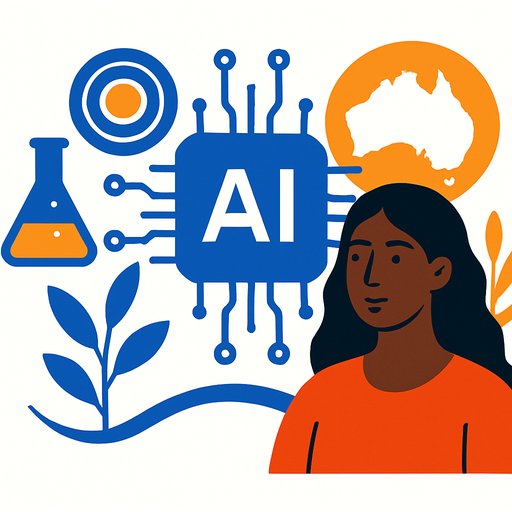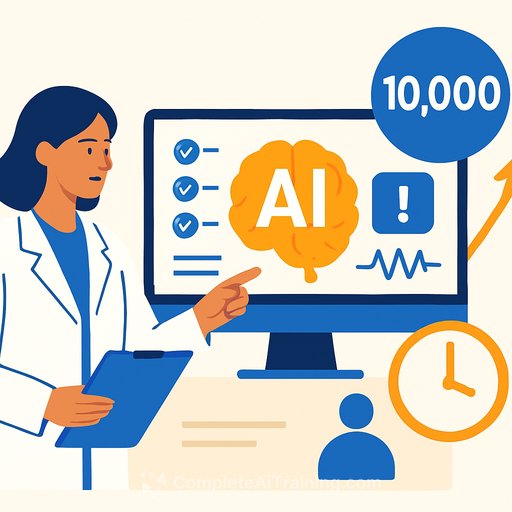CSIRO report calls for Indigenous-led AI in healthcare
AI can support better care in Aboriginal and Torres Strait Islander communities, but only if it is built, governed, and evaluated by Indigenous organisations. That is the clear message from new CSIRO research conducted with community-controlled partners.
CSIRO Research Scientist Dr Andrew Goodman, an Aboriginal man from Iningai Country, said current AI frameworks are too general and miss cultural realities. "In Australia, this has resulted in a gap in understanding of how AI can serve Indigenous peoples," he said.
What the project did
The Artificial Intelligence for Healthcare in Australian Indigenous Communities scoping project engaged 53 leaders, clinicians, researchers, and health service providers across four workshops from 2023 to 2025. The goal: establish what "responsible AI" must look like in Indigenous health and identify practical next steps.
"Although these are early findings, this report provides a critical starting point for how to build responsible AI systems in technology such as apps and data collection to improve Aboriginal and Torres Strait Islander healthcare outcomes," Dr Goodman said.
Three priorities for safe, effective AI in Indigenous health
- AI health literacy and cultural appropriateness: Communities and care teams need clear explanations of how AI works, what data it uses, and how it supports day-to-day care. Education and communication must be culturally grounded and locally led.
- Indigenous data sovereignty: Health data should be held, governed, and used under the custodianship of Aboriginal and Torres Strait Islander organisations, with transparent consent, access controls, and benefit sharing.
- Self-determination in design and oversight: Indigenous organisations must lead AI design, implementation, governance, and evaluation-not just be consulted.
"If AI is to benefit our mob, it must reflect our voices, our data and our ways of knowing. Without Indigenous-led governance, there's a real risk that AI will perpetuate bias and repeat the mistakes of the past," Dr Goodman said.
Why this matters for healthcare leaders
Bias in datasets, generic models, and poorly governed deployments can widen gaps in access and outcomes. Clinicians and executives have a responsibility to embed cultural knowledge and Indigenous decision-making at every step of the AI lifecycle.
This is not an add-on. It is a safety, equity, and effectiveness requirement.
How to act now
- Co-lead with ACCHOs: Form formal governance groups with Aboriginal Community Controlled Health Organisations for any AI initiative.
- Set procurement rules: Require vendors to meet Indigenous data sovereignty standards and prove bias testing on relevant populations.
- Build workforce literacy: Run short, practical AI literacy sessions for clinicians, health workers, and administrators with culturally appropriate materials.
- Consent and transparency: Provide plain-language explanations of models, data flows, and use cases; implement opt-in consent where feasible.
- Community benefit agreements: Document how AI projects return value to communities-services, capability building, shared IP, or revenue.
- Local validation before scale: Test models with community oversight in small pilots; measure clinical, cultural, and trust outcomes.
- Data governance by design: Use custodial data storage under Indigenous organisations, with access logs, audit trails, and redress pathways.
- Continuous monitoring: Track equity metrics (missed diagnoses, time-to-care, adherence) and publish results with community approval.
Dr Jill Gallagher, a proud Gunditjmara woman and chief executive of the Victorian Aboriginal Community Controlled Health Organisation (VACCHO), said: "We know that Aboriginal Community Controlled Organisations can use AI as a powerful tool to support and strengthen their work, but it's imperative that our Mob are in the driver's seat to ensure true self-determination."
Who is involved
The project was co-led by CSIRO's Australian e-Health Research Centre (AEHRC) with partners including the Victorian Aboriginal Community Controlled Health Organisation (VACCHO), the Aboriginal and Torres Strait Islander Community Health Service (ATSICHS Brisbane), the Centre of Excellence for Aboriginal Digital in Health (CEADH), and the Australian Indigenous HealthInfoNet.
The team is now using these findings to co-design self-determined AI tools in Aboriginal and Torres Strait Islander health. The report is available via the CSIRO website.
Helpful next step for teams
If you are building AI literacy across clinical, operational, or executive roles, explore curated AI courses by job to support targeted upskilling alongside community-led guidance.
Your membership also unlocks:






